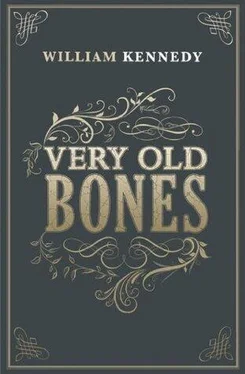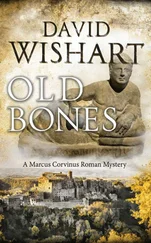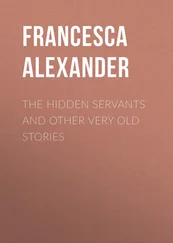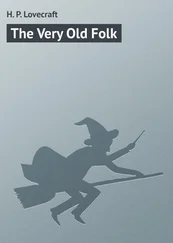When Kathryn Phelan died in her sleep of oblivion on December 9, 1934, her son and my father, Peter, after twenty-one years of part-time exile from his mother’s influence, was at the brink of the success to which his exile had led him. The Greenwich Village gallery that had paid him seventy-five dollars for every painting he created during his first two years in New York, and which doubled that amount after he returned from the Great War, decided that the time for Peter’s elevation into the stratosphere of artistic repute and solvency was at hand, and so its owners gave over all their wall space to an exclusive showing of his work. Peter’s mother would neither know, nor, if she had known, care, whether Peter ever lifted a paintbrush. But her death, and his one-man show, were benchmarks of liberation for this son and erstwhile artist manqué.
Peter moved to the Village in 1913 after a fight with Kathryn and his sister Sarah over the Daugherty family. Until 1912 the Daughertys had lived in the house next door to the Phelan homestead on Colonie Street; but that year the Daugherty house burned and its only occupant of the moment, Katrina Daugherty, died on the sidewalk in her husband’s arms, victim of smoke, anguish, and a prolonged marital emptiness.
One year later, on the anniversary of Katrina’s death, her husband, Edward, an established playwright, would celebrate her by staging the play in which their idyllic marriage and blatant infidelities were dissected. This play, The Flaming Corsage , would run for two nights on the stage of Albany’s premier theater, Harmanus Bleecker Hall, and would be assaulted unto death by critics, and by civil and ecclesiastical authorities, as a menace to the purity of the community. During this fated year the playwright would thus not only lose his wife, and see his lifetime accumulation of papers and unpublished plays incinerated, but would also find his career halted, and his voice silenced at the peak of its eloquence.
Edward Daugherty would recover from this assault, but my father would not, quite. Exposed for a decade and a half to the chorale of vitriol directed against Edward and Katrina Daugherty by his mother and sister—“a family of filth. . an evil man. . a low woman. . a vile slut. . a corrupter of innocents”—Peter at long last counterattacked, defending Katrina, whom he had coveted as long as he could remember, as a splendid woman, whatever her peccadilloes, and the exemplary mother of his closest friend, Martin Daugherty; also defending Edward as a genuine artist and the only real writer Albany had produced in the new century, this latter defense being as much an expression of the passion for art that lay within Peter’s own heart as it was empathy for a friend. Peter stood up from the dining-room table, which gave a view onto the ashes and embers of the Daugherty house, and told his sister she would shrivel from the vinegar in her veins, told his mother she was a wicked-tongued bigot whose poisoned thought came up from the cellars of hell, and told both that he would listen to them not a minute longer.
He climbed the stairs to his bedroom, pulled his steamer trunk out from the attic crawlspace, packed it (as he had planned to do five years earlier, when a similar impulse to escape was on him), filled it with art implements, shirts, socks, and umbrage, hoisted the trunk onto his shoulder, and then in the midst of a rainstorm that would not only drench him to his underwear and the brink of pneumonia, but would precipitate the worst flood in Albany’s modern history, walked twelve blocks to Keeler’s Hotel for Men Only, at Maiden Lane and Broadway, and there slept his first night of freedom from the matriarchal whipsong.
The next morning his brother Francis, with his son, Billy, came for Peter in a rowboat, and they rowed up the two-foot-deep river that Broadway had become, to Union Station, where Peter boarded the New York train. By prearrangement he settled in at the apartment of Edward Daugherty on MacDougal Street in Greenwich Village, those quarters not used by Edward during the year that he had stayed in Albany to stage his play, and now the temporary home of Edward’s son, Martin. It was Martin who had convinced Peter that his future lay here among the artists, writers, political rebels, freethinkers, unshockable women, and assorted social misfits and fugitives who were amorphously shaping Manhattan’s new bohemian order.
Peter found work illustrating reprints of children’s editions of James Fenimore Cooper, Jack London, and Mark Twain novels, and used a corner of the Daugherty kitchen to set up his easel to begin anew the work of his life. But it would be a year before he was able to think of himself as a genuine member of the bohemian brigade; for he was incapable of fully representing himself, even to himself, as an artist, that word too imperious for his provincially crippled soul. And so he ate, drank, and worshipped with the Village’s Irish working class, into whose midst the bohemians were relentlessly intruding.
These Irish, who looked so very like his neighbors on Arbor Hill in Albany, but were so very unlike them in speech, formed the core of subjects for Peter’s early paintings. He sketched people, if they’d let him, then grew brassy enough to carry his sketch pad to the saloon or the park and sketched what he saw, whether the subjects liked it or not. From hundreds of sketches his imagination would let one, then another, single themselves out for delineation in oil, his theme always being: this is evidence that yesterday did exist; this is what yesterday looked like.
One early choice was the face of Claire Purcell, a nineteen-year-old beauty from Brooklyn with a cascade of dark red hair, brown eyes, and milk-white skin, who resembled he knew not whom, but someone; and her curiosity about his sketch of her feeding pigeons in Washington Square on a spring morning in 1914 began the relationship that would dominate both their lives and lead to the erratic romance that would be interrupted first by the Great War (Peter enlisted in 1917, became a wagoner with the 304th Ammunition Train, ferried shells and bullets to troops in the Argonne, was hit at St.-Mihiel by shrapnel which dislodged his helmet, ripped his gas mask in two, and knocked him into a shell hole from which he was eventually carried to the hospital and evacuated back to New York, the episode earning him a disability pension, two medals, and frontal semi-baldness from the gas), and interrupted the second time by my birth out of wedlock in 1924. Claire gave me her own name, Purcell, first name Orson, for Peter would neither marry her nor allow his own name to be given to me, uncertain as he was of the source of my conception.
The man Peter suspected of siring me was Rico Luca, a vaudeville magician known to audiences as Manfredo the Magnificent, who had hired Claire to be his assistant (known to audiences as The Beautiful Belinda) in 1923, two years after Peter moved into the boarding house on Waverly Place run by Claire’s widowed mother. Peter and Claire pursued their romance in separate bedrooms until Claire’s mother died and they then moved in together, marriage always a subject only for future discussion; for would not marriage negate the freedom that Peter had come to the city to find?
A decade of life amid the pagan romps of la vie bohème had conditioned him to think of fidelity as an abstraction out of his past, and yet he practiced it, and expected it from Claire without ever speaking of it. Then, when travel to the vaudeville houses of the eastern seaboard became part of Claire’s life as well as the means of support for the boarding house that no longer accepted boarders, and whose upkeep and mortgage were beyond Peter’s income, Peter entered into fits of jealousy. He was certain that a woman as comely as Claire, whose body clad in tights was a cause for whistles and hoots from any audience, would be unable to fend off forever the advances of the handsome Manfredo and the stage-door lotharios Peter imagined waiting for her at every whistle stop.
Читать дальше












